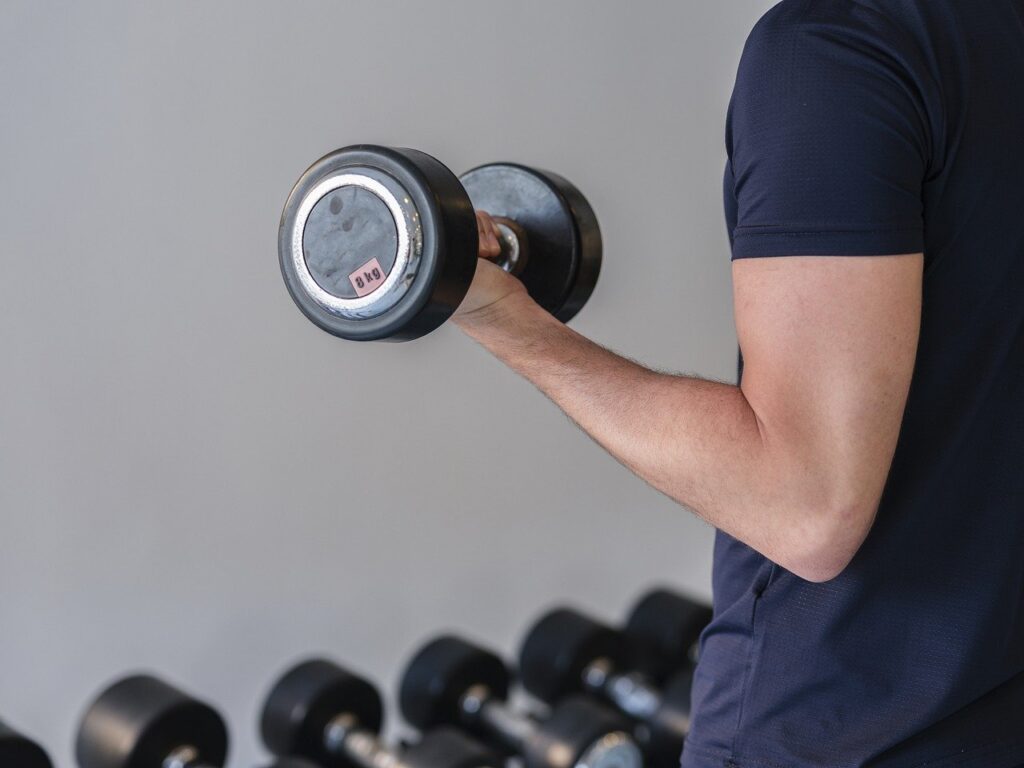
It proves that you don’t get to need gym equipment or a membership fee in order to Build muscles. If nothing else the group points out that it is possible to begin weight training at home and gain significant amounts of muscle tissue whilst using semi-cheap, standard equipment. Yes, it is very much possible to pack on muscle without much equipment and get great outcomes by executing the correct strategy, with only a few bits and pieces of equipment, taking things slow and steady.
Here you will find information about the basic build muscle training principles, read about some of the suggested home workouts, and find out more about the ways to structure your training. In the first part, we will explain the concepts that relate to muscle hypertrophy, in the second part, we will look at how this information can be used to build muscle in the real world as effectively as possible.
Understanding the Basics of Muscle-Building
To effectively build muscle, it’s crucial to understand two key principles: hypertrophy and progressive overload, which simply means that by creating progressive enlargments in the stimulus resistant to change we are able to elicit from the body an ongoing enlargement of the relevant structures in resistance to the original change. These are the principles that help in build muscles.
Hypertrophy
Hypertrophy is the development of the bulk of muscles and this result from muscle fibers’ tension that causes micro rapture. As with the walls of these tears, they get thicker and stronger enabling you to Build muscles effectively. This has to be done in order to pack on the muscle and with the correct procedure you can achieve muscularity that is not only cosmetic but well set for longevity. In the second week of training, you will progress the adaptation and Build muscle in your body and Build muscle strength and muscle mass continually. This is how you really build your muscles and,sometimes literally, see the light at the end of the tunnel.
Progressive Overload
The stress from exercise is when it is progressively overloaded. For newcomers this could mean lifting something heavier, doing more repetitions or vary the rhythm and the types of movements. To Build muscle, as you probably understand, you need to apply overload on your muscles. This serves to cause a stimulus to the muscle fibers, which in turn Build muscles to your physique as time progresses.
Sleep, nutrition and protein are important factors as well. Muscles are actually build muscle during rest and not a few minutes on the treadmill, in the gym, or at some aerobics class. Inexperienced trainers forget about rest, but that is when muscles grow and develop, which means that, in essence, Build muscles, is possible.
Essential Equipment for Muscle-Building at Home
Here’s a list of affordable, high-quality muscle-building tools that are compact and budget-friendly:
1.Dumbbells:
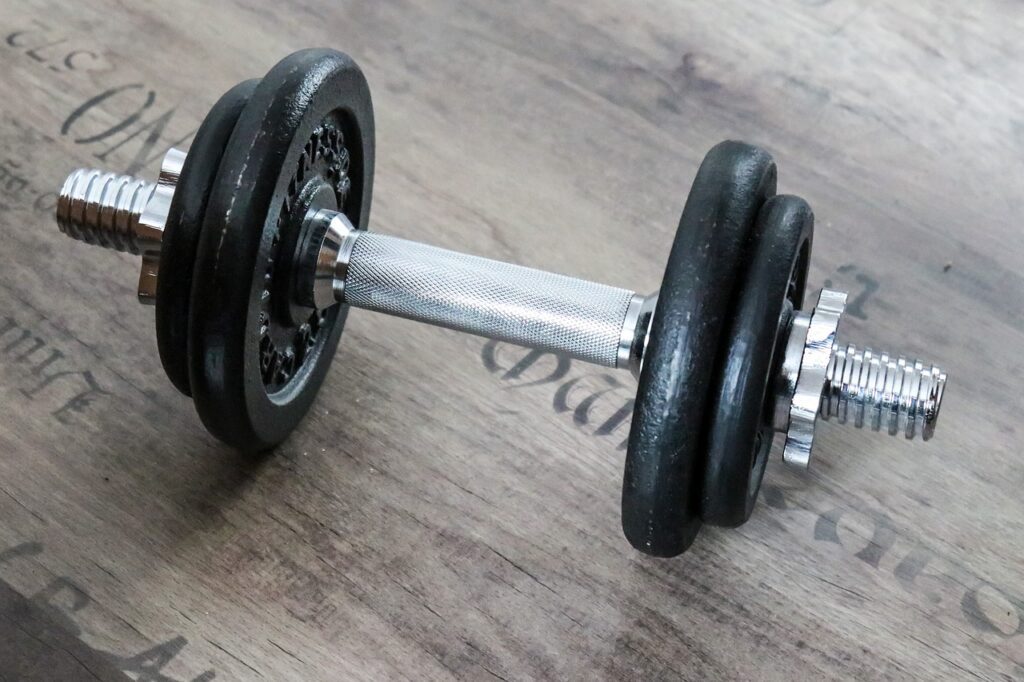
Any of the standard weight lifting equipment will do, a perfect example is a set of adjustable dumbbell; one can increase the weight as he or she build muscle mass. However, if the adjustable dumbbells are not possible, then two or three sets of fixed pounds of dumbbells can also be used.
2.Resistance Bands:
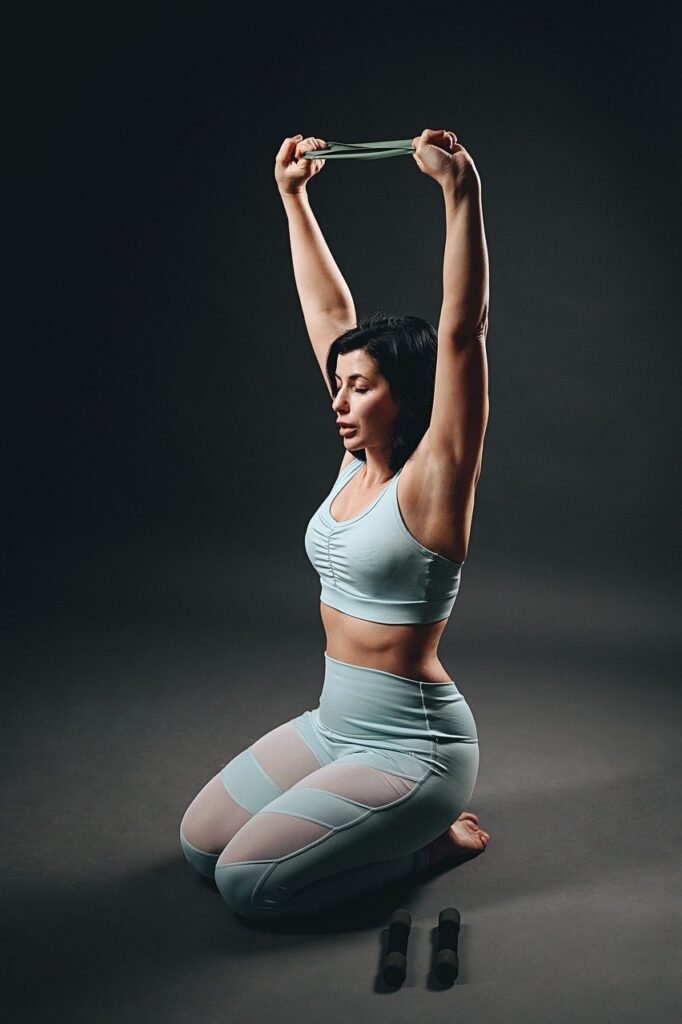
Resistance bands have varying tensions for several exercises, are relatively cheap, compact and can be used anywhere.
3.Pull-Up Bar:

Find a place to install your pull-up bar if possible, otherwise, use a sturdy object such as a tree, door way, etc.
4.Kettlebells (Optional):
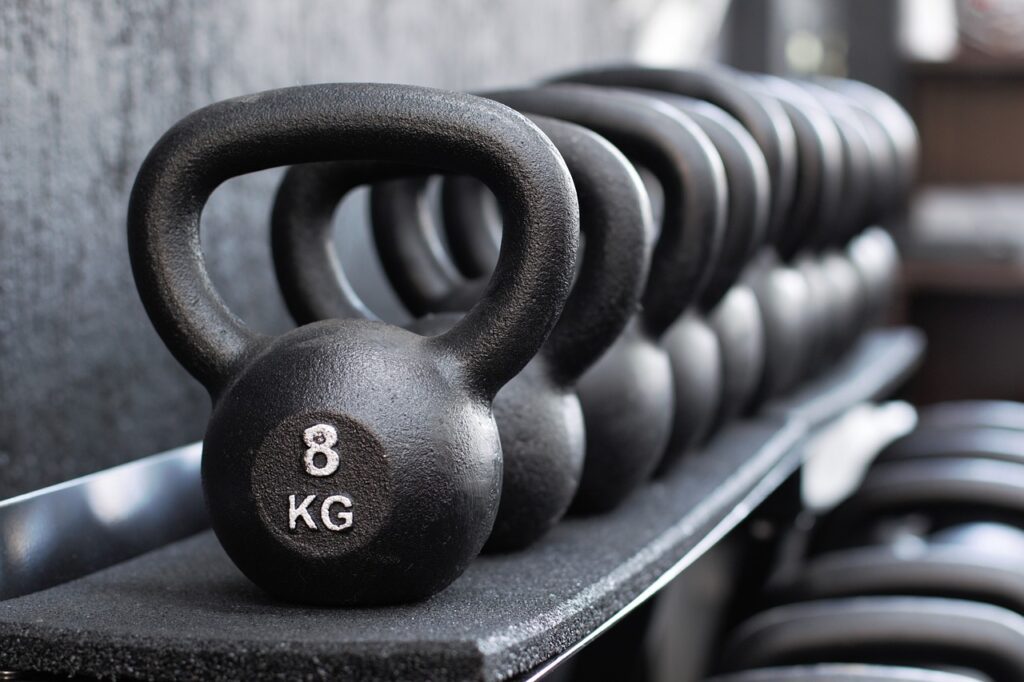
Though not compulsory, adding a kettle bell to the regular swing, squat and lunge mix up the exercises.
5.Floor Mat:
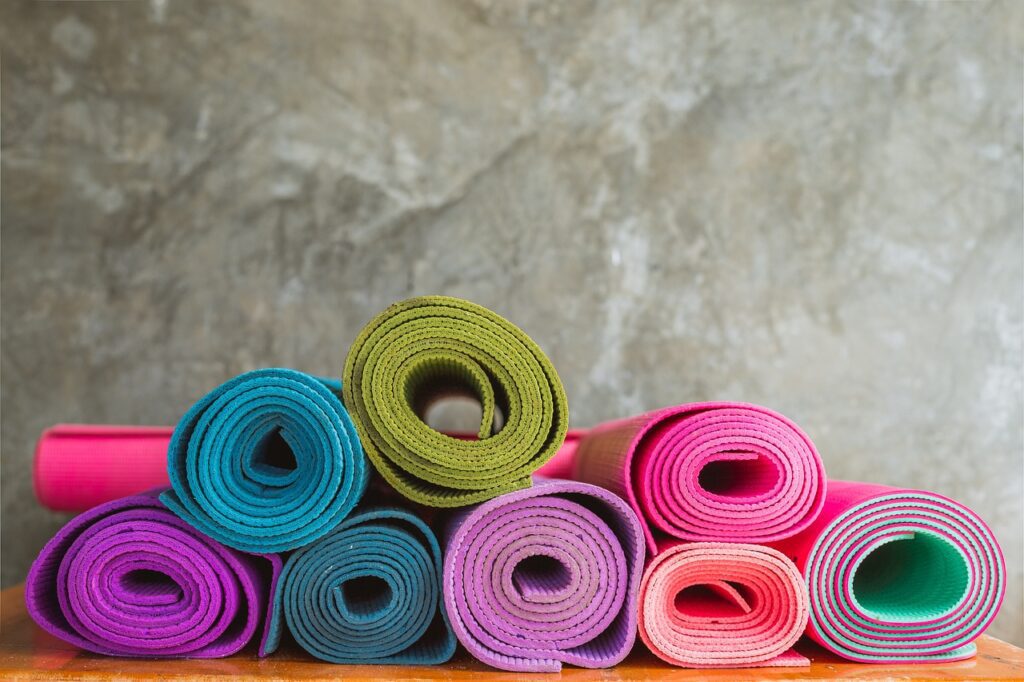
is comfortable and safe especially for individuals exercising on the floor such as crunches, or planks.
Effective Exercises with Minimal Equipment
Now, let’s discuss some fundamental exercises for all body parts that help to build muscles. These are truly basic yet powerful set of exercises that help promote definition and body strength.
Upper Body Exercises
1.Push-Ups
Shoulders, triceps, and chest were worked.
No equipment is required.
A good push-up is one of the most effective bodyweight exercises that not only introduces muscle mass. Those who are more experienced can introduce changes by using resistance bands during the exercise while those learning should consider doing knee push ups or even inclined push ups.
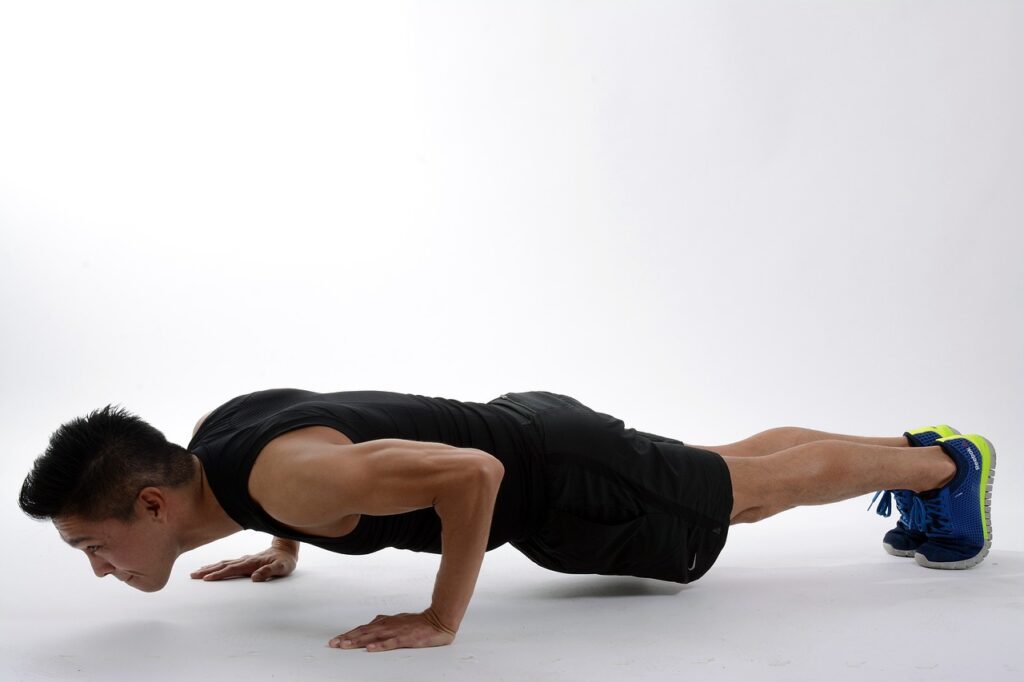
2.Dumbbell Rows
Muscles worked: shoulders, biceps, and back
Required Equipment: Dumbbell
Standing with a dumbbell in one arm, flex forward at the waist and draw the dumbbell towards the waist. This excise involves using a barbell and is suitable for build muscles, correcting posture and strengthening the back muscles.

3.Bicep Curls
Worked Muscles: Biceps
Equipment Required: Resistance bands or dumbbells
Stand tall and lift both the dumbbells up to your shoulder height. For a muscles up, guarantee complete participation by doing the motions slowly and deliberately.
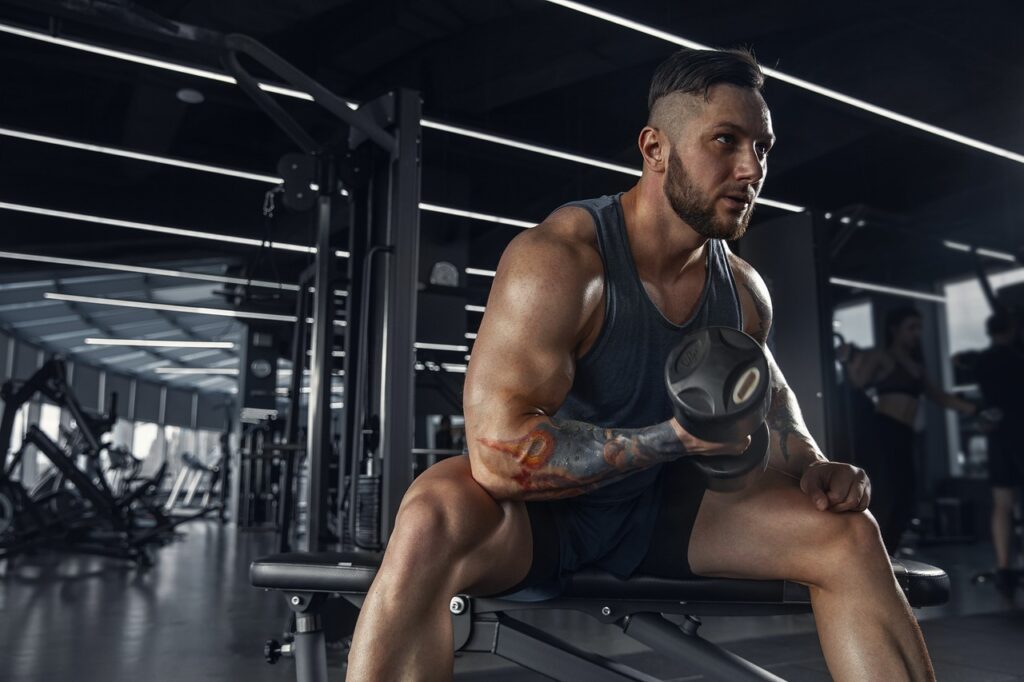
4.Overhead Shoulder Press
Shoulders and triceps were the muscles worked.
Equipment Required: Resistance bands or dumbbells
With the dumbbells’ handles in between your legs, move them up. For this exercise, it is suitable for building the muscle mass and especially good for shoulders.
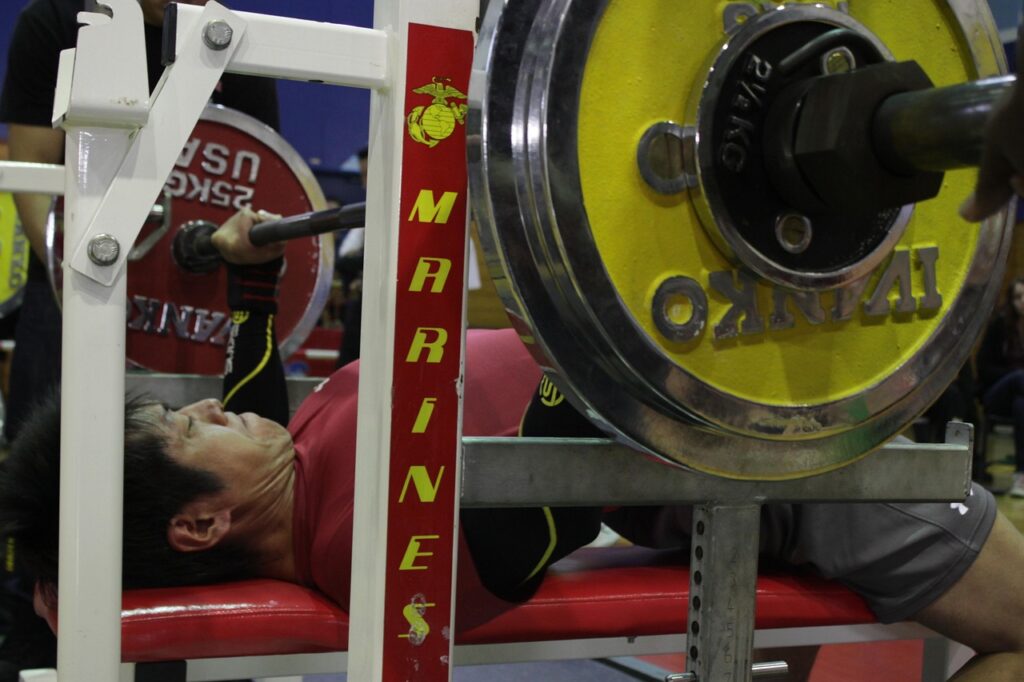
Lower Body Exercises
1.Squats
The quadriceps, glutes, and hamstrings were worked.
No equipment is required, though dumbbells can be used for extra resistance.
Thus bow down as if you were sitting on a chair, your legs should be placed wide apart from each other. It also means using of dumbbells can make the workout more challenging or build muscles of legs and glutes.
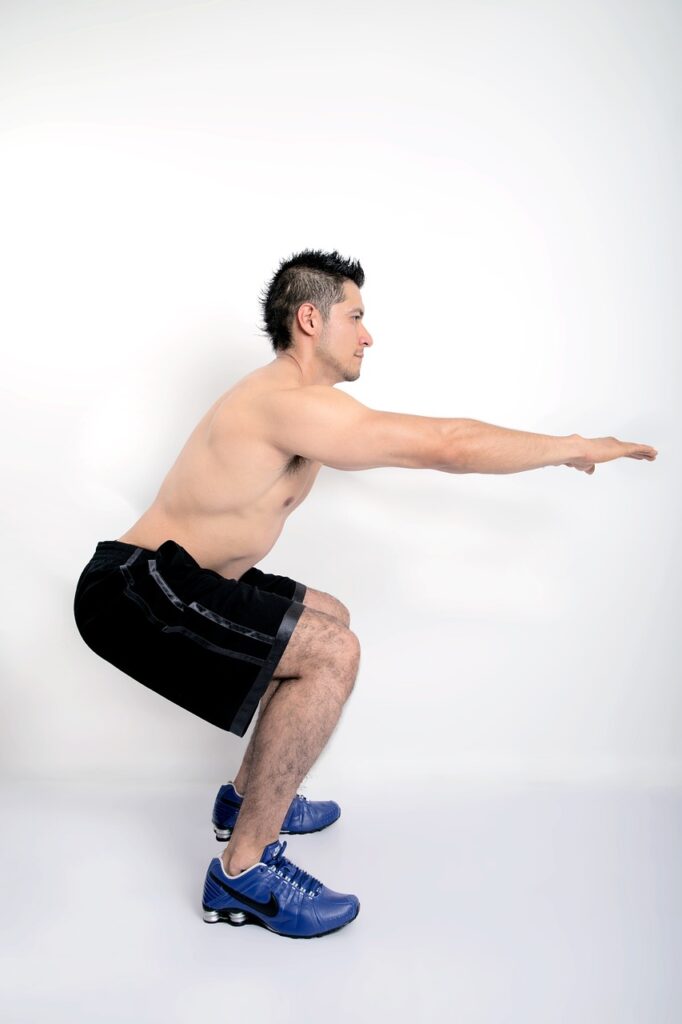
2.Lunges
The quadriceps, hamstrings, and glutes were worked.
Equipment Required: Optional dumbbells
Alternate legs as you advance into a lunge. Lunges improve core stability and balance.
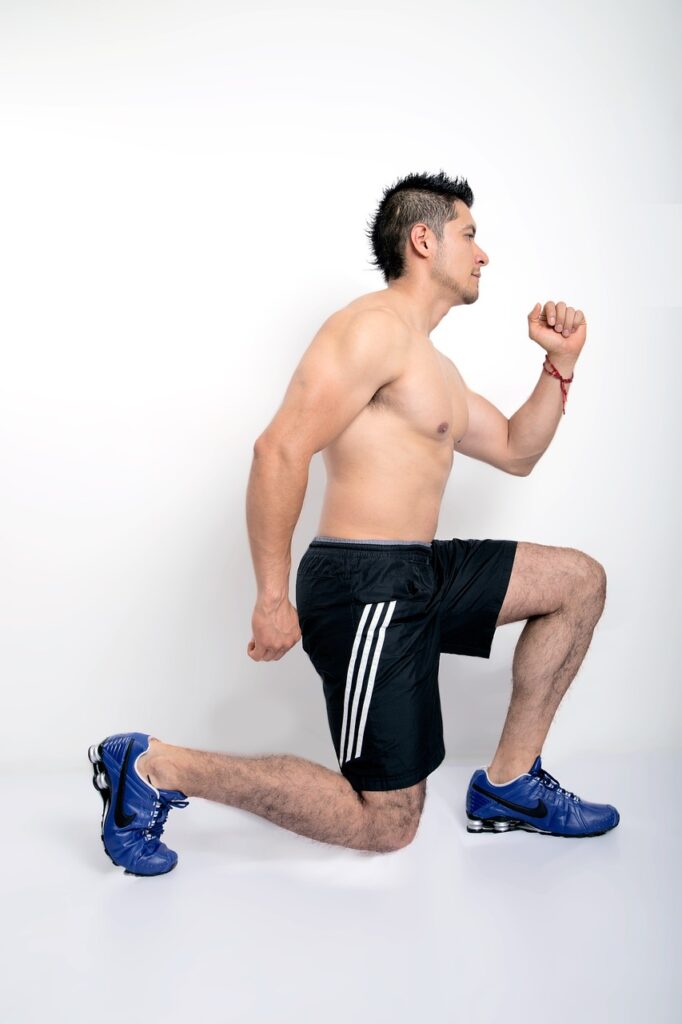
3.Resistance Band Leg Press
Worked muscles: hamstrings and quadriceps
Required Equipment: Resistance band
Lay down and anchor a resistance band, then press your legs against it. This exercise aims at a leg press and it is very effective in building up muscles without using complicated equipment.
Core Exercises
1Planks
Worked muscles: shoulders and core
No equipment is required.
Planks are an overall body weight-train that has its benefits in developing hardness of muscles with the purpose of improving the core muscles strength and stamina. Wait for least 30 seconds and then continue increasing the interval progressively.
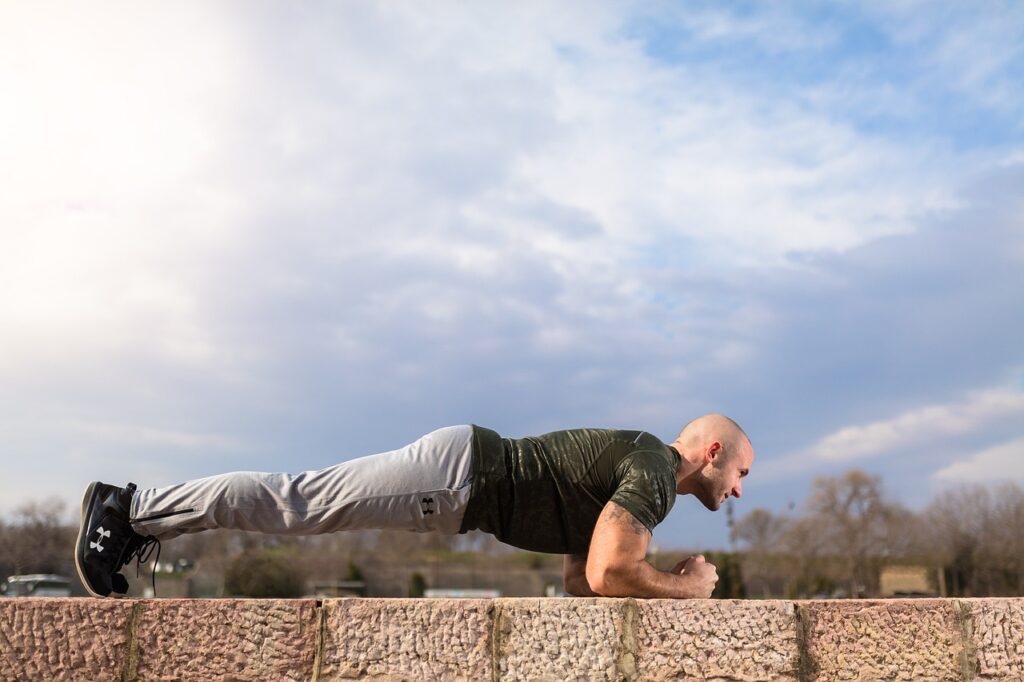
2.Bicycle Crunches
Worked Muscles: Abs and Obliques
No equipment is required.
Lay on your back and start pedaling your legs, touch your elbows and knees in different directions to involve your oblique and shape the muscle.
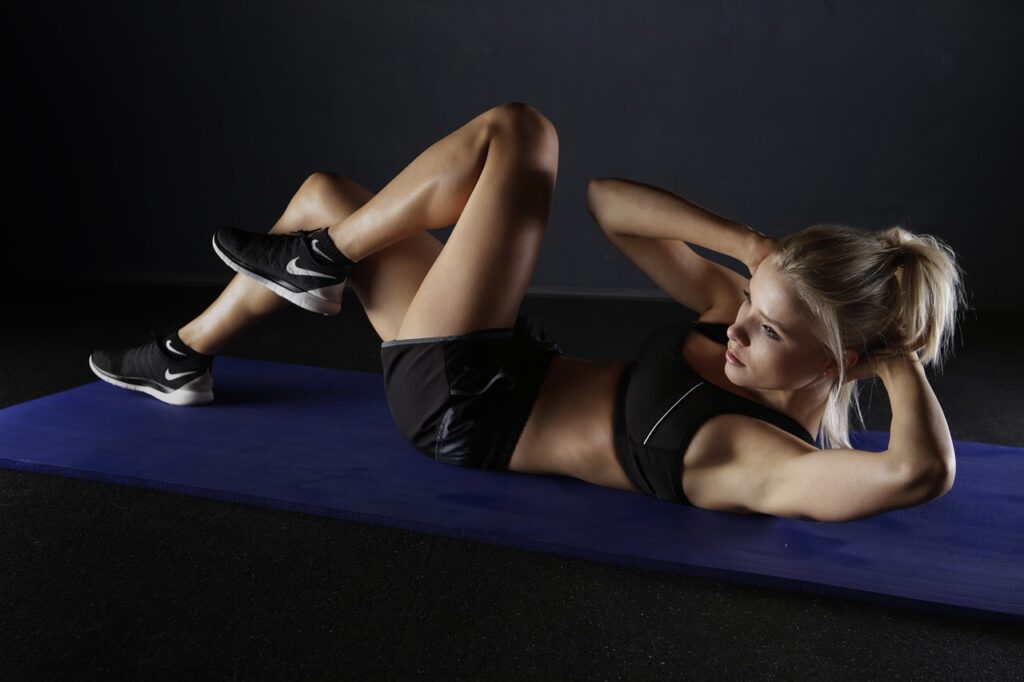
3.Resistance Band Woodchoppers
Worked muscles: obliques and core
Required Equipment: Resistance band
Bend towards the opposite side diagonally across the abdomen while exercising with a resistance band tied at a lower pulley. This movement assists in strengthening your muscles in your core and particularly the oblique muscles.
Compound Movements
1.Burpees
All body muscles were used.
No equipment is required.
Burpees improve endurance and calorie burning by combining strength and cardio.

2.Kettlebell Swings (if kettlebells are available)
Worked Muscles: Hamstrings, Core, and Glutes
Required Equipment: Kettlebell
With a smooth motion, raise the kettlebell from a squat position to shoulder height.
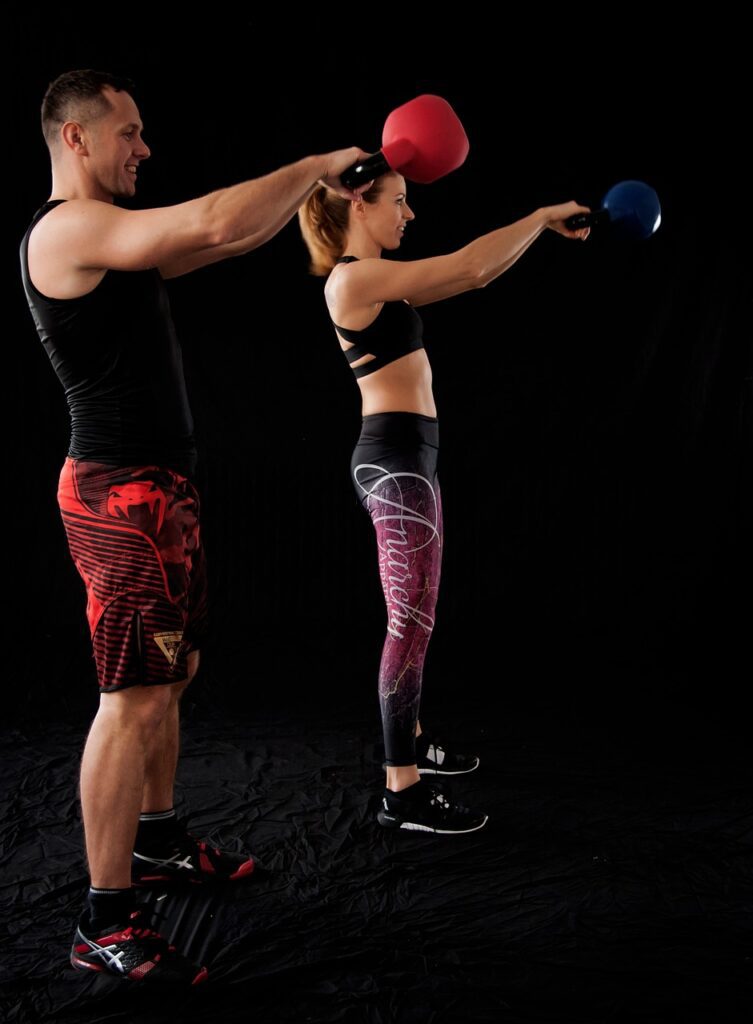
Structuring a Beginner-Friendly Muscle-Building Routine
The secret is consistency. Aim for three to four sessions per week, with days off for recuperation in between. Here is an example of a three-day routine:
| Day | Muscle Group Focus | Exercises | Sets | Reps |
|---|---|---|---|---|
| Day 1 | Upper Body | Push-Ups, Dumbbell Rows, Bicep Curls | 3 | 10-12 |
| Day 2 | Lower Body | Squats, Lunges, Leg Press | 3 | 12-15 |
| Day 3 | Core and Compound Movements | Planks, Bicycle Crunches, Burpees | 3 | 15-20 |
Gradually increase reps, sets, or resistance every few weeks to apply progressive overload.
Table of Data: Exercises, Targeted Muscles, and Equipment Needed
| Exercise | Targeted Muscles | Equipment Needed |
|---|---|---|
| Push-Ups | Chest, Triceps, Shoulders | None |
| Dumbbell Rows | Back, Biceps, Shoulders | Dumbbell |
| Bicep Curls | Biceps | Dumbbells or Resistance Band |
| Squats | Quadriceps, Glutes, Hamstrings | Dumbbells (Optional) |
| Resistance Band Leg Press | Quads, Hamstrings | Resistance Band |
| Planks | Core, Shoulders | None |
| Kettlebell Swings | Glutes, Hamstrings, Core | Kettlebell (Optional) |
Frequently Asked Questions (FAQs)
1. How long before I see results with minimal equipment?
Newbie lifters often get to realize enhanced muscle tone and strength in a period of 4-6 weeks. Muscle building may take several months and this depends on the routine eastern commitment and diet.
2. Can minimal equipment really build muscle effectively?
Yes, with bodyweight exercises, resistance bands, and dumbbells, you can build a lot of muscle as long as you stick to progressive overload.
3. Do I need protein supplements to build muscle?
It’s not helpful to take supplements if proteins are obtained directly from food sources. But, if protein intake in a day is something that one can struggle to achieve then protein shake might be a good idea.
4. How do I avoid injuries with home workouts?
Prior to excercises rehearse proper form and do not allow yourself to perform exercises swiftly. Slowly increasing the volume of exercise to decrease pressure on the different parts of the body.
5. Is it possible to build muscle without lifting heavy weights?
Absolutely. Functional and isolated movements, resistance bands, and bodyweight exercises can be as effective in hypertrophy as massive amounts of weight.
Maximize Muscle Growth with Minimal Equipment

Wanting to gain some nice muscles? But you do not need expensive exercise equipment? This guide is specifically designed to walk you through everything you need to know about getting muscular without having to invest in much equipment. To take your muscle-building journey to the next level, check out this amazing product here so as to increase strength, physical efficiency and accomplish the best fitness. Start your new life today!
Conclusion
Yes, build muscles without many equipment is very possible anytime and can especially be perfected for beginners. It is also worth continuing weight training and strengthening muscles to reduce the risk of injury you don’t have to spend hours at the gym: following the main exercises, strict programs, and gradually increasing the load, you can build muscles that are necessary for dancing. It is very important to be regular in all affairs of life: try to hear your body, feed it, and sleep as you do exercises. However, as this article shows, you can get decent amounts of muscle with little to no gear at all, if you do it right.
Because building muscles is not only possible from home it is an enjoyable process that makes you stronger and more confident and healthier.


[…] a journey of fitness is perhaps one of the scariest things that anyone with no prior experience or even with a moderate […]
[…] to embrace the durability of exercise to have good basic on subject matter. Here are some crucial fitness tips for […]